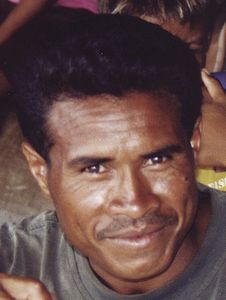 The Bajau are a highly mobile maritime people group found throughout the coastal areas of most Indonesian islands. They can also be found in the neighboring countries of Malaysia and the Philippines.
The Bajau are a highly mobile maritime people group found throughout the coastal areas of most Indonesian islands. They can also be found in the neighboring countries of Malaysia and the Philippines.
Their high mobility led outsiders to refer to them as “sea gypsies.” In Eastern Indonesia, the largest number of Bajau are found on the islands and in the coastal districts of Sulawesi.
They speak the language of Bajau. The Bajau language is part of a larger language group called the Sama Bajau.
What are their lives like?
While many Bajau live in houses built on stilts in shallow water, some Bajau are boat dwellers. Among the Bajau boat dwellers, local communities consist of scattered moorage groups made up of families whose members regularly return to a common anchorage site between fishing trips. Two to six families will group together in an alliance to regularly fish and anchor together, often sharing food, nets, and gear, and pooling labor. The marine life exported by the Bajau fishermen is diverse, including over 200 species of fish.
Fishing activity has many variables, including tides, currents, and the monthly lunar cycle. During moonless nights, fishing is often done with lanterns, using spears and hand lines. Today, fishing is primarily for market sale. Most fish are preserved by salting or drying. In some cases turtles are caught and kept under the house until an appropriate feasting time (such as the marriage of a son) – to the chagrin of marine conservationists.
The boats that are used as family dwellings vary in size and construction. The boats are about 10 meters long and 2 meters in wide. They are plank construction with solid keel and bow sections. All are equipped with a roofed living area made of poles and straw matting and a portable hearth. It is usually carried near the stern and is used for preparing family meals.
The boat-dwelling Bajau see themselves as non-aggressive people who prefer flight to physical confrontation. As a consequence, the politically dominant groups of the region have historically viewed the Bajau with disdain as timid, unreliable subjects.
What are their beliefs?
The Bajau are Sunni Muslim. Claims to religious piety and learning are an important source of individual prestige. The boat dwelling Bajau lack mosques. They must rely on the shore-based or stilt-house communities for this.
Among boat dwelling communities in particular, community shamans are assembled at least once a year for a public séance and nightly trance dancing. In times of epidemic illness, they are also called on to set a spirit boat adrift in the open sea beyond the village or anchorage site in order to remove the illness-causing spirits from the community.
What are their needs?
The Bajau need infrastructure development and renovations in the areas of health and education. Medical workers, facilities and services in their communities are very inadequate. Because of their nomadic lifestyle, many Bajau people are illiterate.
Leave a Reply